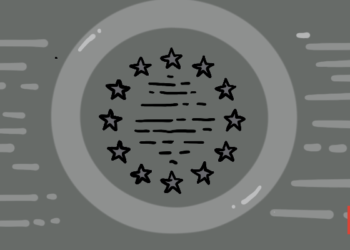The Indian Music Industry (IMI), representing major labels such as T-Series and Sony Music, has raised concerns about accountability for metaverse operators in cases of intellectual property rights (IPR) infringement.
TakeAway Points:
- The Indian Music Industry has raised concerns about the interoperability of systems in the Metaverse.
- IMI suggests that interoperability of systems in the Metaverse could raise the potential concern of online piracy.
- Stakeholders urged that the Digital Personal Data Protection (DPDP) Act and the Consumer Protection Act should be strictly enforced.
IMI Disapproves Request for Platform Interoperability
With regards to an earlier submission to the Telecom Regulatory Authority of India (TRAI), Meta had proposed that “the metaverse should be developed collaboratively and with interoperability in mind, mirroring the kind of open internet protocols we see in place today that empower people to seamlessly navigate and travel between multiple online experiences.”
In response to the consultation on Digital Transformation through the 5G ecosystem, IMI has asked for shared responsibility between metaverse operators and users when it comes to defending the rights of creators and consumers, claiming that the action would deny music artists the opportunity to receive royalties because, in an interconnected world, content licensed on one platform can be viewed on any other platform, even if it lacks streaming rights.
“Interoperability of systems in the Metaverse could raise the potential concern of online piracy, considering the nature of interoperability being such that it enables users to access and share content across multiple services in the connected metaverse. In an interoperable environment, different platforms may have varying levels of copyright enforcement measures and policies. This lack of standardized practices can lead to inconsistencies in addressing online music piracy, creating loopholes that pirates can exploit in order to evade liability.”
IMI responded.
Difficulties of Rights Holders
Blaise Fernandes, CEO and President of IMI, expressed concerns regarding the possible expansion of safe harbor protection into the metaverse. He emphasized the difficulties rights holders encounter in upholding copyrights, particularly in the music sector, where user-generated content sites already assert safe harbor protection.
Fernandes contended that bringing this protection into the metaverse might cause irreversible harm to artists, creators, and rights holders, which might impede the development of India’s recorded music market.
Interoperability can also exacerbate licensing agreements and royalties receivable by music rights holders from music streaming services.
“Different platforms may have distinct licensing terms and revenue-sharing models, leading to disputes and uncertainties in compensating artists and rights holders. Specifically on user-generated platforms and platforms enabled on the Metaverse itself, cross-sharing of copyrighted material by users can lead to potential copyright concerns,”
IMI said.
The Need for Accountability
Despite IMI’s emphasis on shared accountability, some stakeholders, including Meta, Jio, VI, BSNL, Nasscom, Tata Communications, and Nokia, believe that the current IPR framework is sufficient to govern the metaverse. Nokia highlighted the possible issues coming from generative AI use in the metaverse and proposed researching blockchain with NFTs, but noting its limits in offering enforcement tools for IPR.
However, the majority of stakeholders concurred that the current content moderation standards are adequate for regulating the metaverse. They advise TRAI to take a cautious “wait and watch” stance in order to prevent restricting innovation. Nasscom proposed using the impending Digital India Act to handle metaverse regulation.
Meta agreed that the metaverse is currently regulated by current internet legislation; however, it acknowledged that new problems can arise as technology advances. However, it also urged for a comprehensive framework for communication to address emergent concerns and identify regulatory gaps, emphasizing a case-by-case approach to determine whether new laws are necessary.
Meanwhile, Stakeholders debated whether current laws like the Digital Personal Data Protection (DPDP) Act and the Consumer Protection Act are adequate in light of the growing amount of personal data being collected by metaverse operators—as long as they are strictly enforced.
Multi-regulator Body
Jio suggested the establishment of a multi-regulator body to handle metaverse jurisdictional concerns. The Indian government was asked to allow Wi-Fi in the 6 GHz band by both BIF and Meta, who emphasized that low latency and jitter are essential for the best possible experiences with augmented reality (AR) and virtual reality (VR).
In its consultation paper, TRAI pointed out key applications of the 5G ecosystem, including the internet of things (IoT), machine-to-machine (M2M) communication, and the metaverse.
The regulatory authority requested feedback on how to promote IoT devices, increase the use of 5G, remove obstacles, create policies for user privacy and data security, and regulate the metaverse while taking potential privacy and content moderation concerns into account.
















